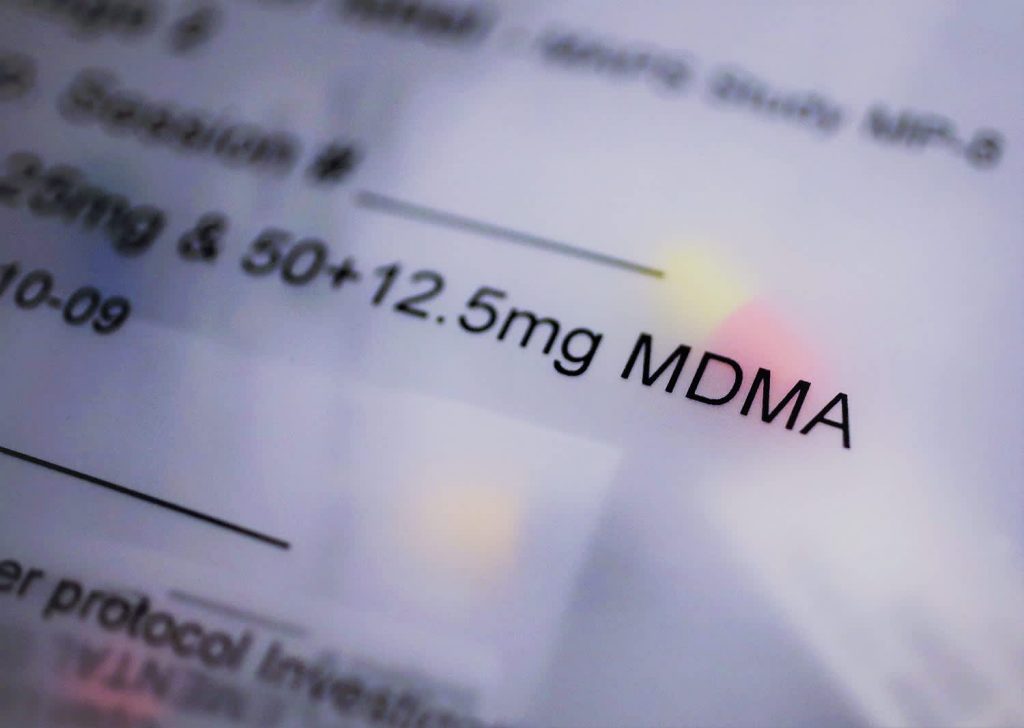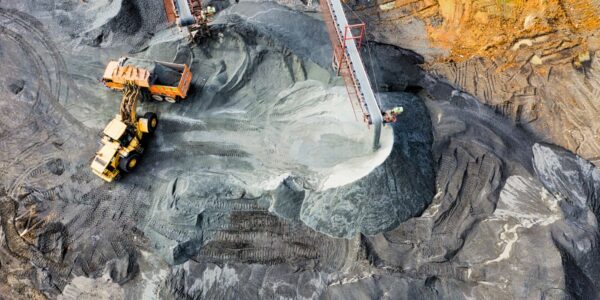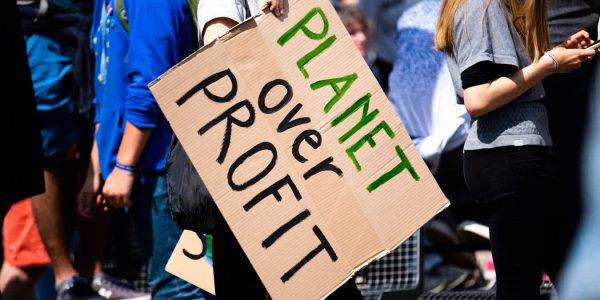The popular party drug, MDMA, has long been considered a life-changing experience for those who advocate its use — in both party and social settings. A single dose can produce overwhelming feelings of euphoria, calmness, and an urgency to dance, smoke cigarettes, and tell strangers that you love them.
For some time, scientists have been investigating whether or not the illegal drug, sold in Australia as ecstasy or ‘caps’, has uses beyond the dancefloor.
In recent years, the evidence has been mounting to suggest that MDMA might just be one of the most effective drugs we have to combat treatment-resistant PTSD, depression, and other complex mental health and mood disorders for which there are currently no simple treatments — or a cure.
Now, a new study, expected to be published in the journal Nature Medicine, confirms what the ravers have been saying all along: this stuff works.
The study gave MDMA — in combination with therapy — to people suffering from PTSD, and found that it greatly reduced their symptoms compared to a placebo. Two months after treatment, 67 per cent of those treated with MDMA no longer had symptoms qualifying them for a diagnosis of PTSD.
In other words, they were cured.
These findings could have huge repercussions for the way we treat complex mental health conditions — both in the US and right here in Australia.
“There is Nothing Like This”
Neuroscientist Gul Dolen at the Johns Hopkins University School of Medicine, a big player in the psychedelic research space but not one involved in the study, spoke with The New York Times to emphasise the significance of this research.
“This is about as excited as I can get about a clinical trial,” said Dolen. “There is nothing like this in clinical trial results for a neuropsychiatric disease.”
Complex mental health conditions like PTSD are notoriously hard to treat. Due to the way our brains are structured, people suffering from past trauma can find it impossible to process and deal with their experiences.
MDMA serves as a “catalyst” to therapy, according to Dr Jennifer Mitchell, lead author of the paper. While promoting feelings of empathy and bliss, MDMA allows patients to literally re-think traumatic events and come to terms with what has happened to them.
“While many forms of PTSD therapy involve recalling previous trauma, the unique ability of MDMA to raise compassion and understanding while tamping down fear is likely what enables it to be so effective,” Dr Mitchell said.
The trial was sponsored by the Multidisciplinary Association of Psychedelic Studies or MAPS, one of the world’s largest activist-research groups for the use of psychedelics in medical settings.
The randomised, blind, Phase 3 trial treated 90 patients with severe, chronic PTSD. Participants received three sessions of therapy along with either MDMA or a placebo. An independent clinical assessment of their symptoms conducted two months after the treatment found that 67% of the MDMA group no longer qualified for a PTSD diagnosis; 88% of participants experienced a clinically significant reduction in symptoms.
In the placebo group, 32% no longer qualified for PTSD diagnosis at the two-month follow-up and 60% experienced a clinically significant reduction in symptoms.
Phase 3 trials are large-scale human trials which are the stepped-up versions of similar Phase 1 and Phase 2 trials that are undertaken with fewer people. The US Food and Drug Administration requires two Phase 3 trials to be completed before they will consider allowing a drug to be used routinely.
In the Phase 3 trial, the investigators observed no serious safety or tolerability issues in the MDMA group. MDMA did not increase the risk of suicidal thoughts or behaviours and did not increase cardiovascular risk or the potential for abuse relative to the placebo.
There were, however, some temporary increases in blood pressure and pulse along with temporary feelings of muscle tightness, decreased appetite, nausea, sweating, and feeling cold.
Could MDMA Be Used Medically In Australia?
In the US, MDMA is listed as a Schedule I drug. These are defined as having “no medical benefit” and, therefore, MDMA is not currently accessible as a potential treatment for PTSD or any other condition except in clinical trials.
MAPS executive director Dr Rick Doblin said “As a result of this study, and through the persistent and consistent application of scientific rigour, we have demonstrated that MDMA-assisted therapy is likely to provide relief for people diagnosed with PTSD.”
“Far from having no medical benefit, MDMA, when combined with talk therapy in this protocol, has the potential to catalyze the therapeutic process and generate positive mental health outcomes.”
Further Phase 3 trials are underway and MAPS are hopeful the FDA could grant permission for the use of MDMA in a therapeutic setting by 2023.
Here in Australia the Therapeutic Goods Administration (TGA), our own version of the FDA, are currently deliberating on whether or not to down-schedule both MDMA and psilocybin — the active component of magic mushrooms — from Schedule Nine to Schedule Eight drugs for therapeutic use.
There is some controversy in the ongoing discussion, as the TGA initially posted an interim decision in February stating they would be unlikely to down-schedule the drugs due to lack of research, namely the lack of Phase 3 trials, and possible potential for abuse.
However in April, when the TGA was supposed to publish their final conclusion, they took the somewhat unusual decision to launch an independent inquiry into the research, giving themselves more time and a more detailed examination of the drugs before making a decision.
Peter Hunt is the co-founder of Mind Medicine Australia, the charity that submitted the proposal to the TGA for the rescheduling of the drugs.
He said that “the results are what we had all hoped for and, based upon the Phase 2 trials, sort of expected. It’s really good to see them actually announced.
“It should remove any doubt that these therapies should be available in medically controlled environments, with the right protocols, for people who desperately need them”.
Speaking of the TGA decision, Hunt says he can’t see how they cannot reschedule.
“If you think about other substances, morphine is a schedule eight medicine and morphine is essentially heroin. It’s the same molecule… Heroin is right up there in terms of the most dangerous drugs, and psilocybin and MDMA are some of the safest drugs.”
“We’re not talking about recreational drug-taking, we’re talking about using their medical benefits. All the data is saying that when you use these substances in medicine, they are very safe.
“There’s also now lots of data that says when we use them in medicine, not only are they safe, but actually they lead to high remission rates with mental illnesses that the current modalities aren’t actually alleviating.
“You’ve got to stand back and say, ‘well, why would you not make these available to people who are treatment-resistant with depression or PTSD?'”
Currently, the TGA has no proposed timeline for how long the rescheduling decision might take. Hunt believes that with the recently announced Royal Commission into Veteran Suicides, the government will be forced to confront the reality that they are not doing everything they can to prevent these tragedies.
“When you think about the pain and suffering caused by PTSD and treatment-resistant depression, the slowness of this process… this has been going on now for about 10 months, and it looks like it will go on for more than a year.”
That being said, with new research emerging demonstrating unequivocally the safety of not only MDMA by psilocybin as well, Hunt remains positive for the outcome: “I think we’ve got a real chance of rescheduling these medicines.”
Related: The Government Is Allowing MDMA and Psilocybin to Be Prescribed for Mental Health
Related: Psychedelic Therapy Is Probably Going to Cost Way More Than You Can Afford
Read more stories from The Latch and subscribe to our email newsletter.







